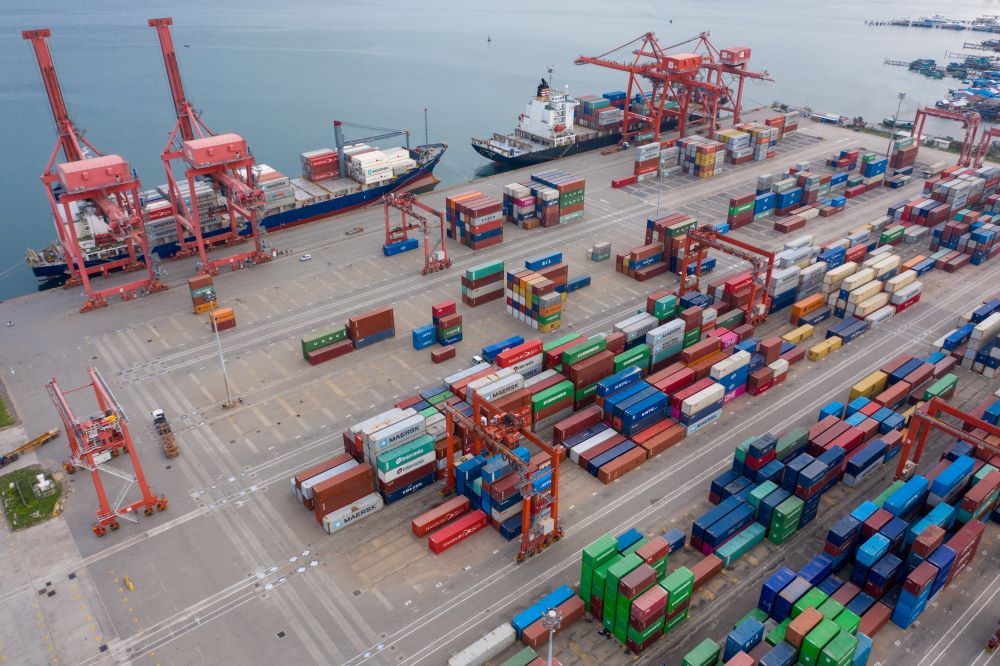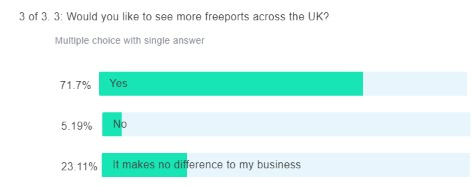
The majority of British traders want the UK government to establish more freeports, a recent poll has found.
The UK is currently setting up eight initial freeports in England, with bidding ongoing for further sites in Wales and Scotland.
On a free IOE&IT webinar yesterday (28 June), however, 72% of delegates said they’d like the government to open more freeports.
Customs benefits
In another poll during the webinar, 38% of businesses said simplified customs processes were the most important benefit of freeports, followed by taxation benefits (27%).

Suzanne Alecrim, a trade and customs specialist at the IOE&IT Academy, agreed that the customs benefits of freeports would be helpful for traders, “particularly having just one authorisation in place”.
John Lucy, a director at Liverpool Freeport and a panelist on the webinar, said that while the tax sites were leading the charge in “turbocharging development” in the initial eight English freeports, the customs zones being created will be critical to their “longevity”.
“International trade is at the heart of the freeport project,” he added.
Not competing
When asked whether new freeports will compete against each other, Lucy said: “Contrary to popular opinion we aren’t competing as we have different geography, trading partners and modes of transport.”
“Indeed a good percentage of containers coming into ports like Felixstowe and Southampton will end up coming to the north west,” he added.
Supply chain crisis
Lucy also said that moving goods by sea between freeports – through short sea crossings or feeder traffic – was becoming “very much the direction of travel” due to the rising costs of in-land goods movements.
“It’s a sign of the times when it comes to the ongoing supply chain crisis,” he said.
He also said the UK had “very strict rules” to combat fears of displacement, whereby a business relocates to a freeport from another part of the country in order to benefit from its tax and customs easements.
Air cargo boom
One area where the Liverpool region is already seeing a boom is in air freight.
David Hughes, the director of strategic development at Wynne Aviation Services who also spoke on the webinar, said that Liverpool airport has gone from handling 80,000 kilos of air cargo in 2017 to 1.5m kilos in just the first six months of 2022.
He said that the freeport project in Liverpool could further enhance the city’s ambition to become an international hub for air freight.
“Our long-term ambition is to turn the cargo facility into an international hub,” he said. “We want to build an airbridge to Dublin, Belfast, the Isle of Man and the European mainland. To make this successful we have to offer a full package. Freeports are therefore of great benefit to us.”
Global project
Panelists noted how there are already over 5,000 free zones globally which the UK can learn from while at the same time defining its own unique approach.
Lucy recently spoke on a panel at the World Free Zone Conference in Montego Bay Jamaica, chaired by IOE&IT trade and customs specialist Dadria Smith.

World Free Zone Conference Panel (left to right): Dadria Smith, John Lucy, Quincy Quayson (director of business development, Liverpool Freeport) and Gabriel Bernard Harding (see below).
MemberCon22
The IOE&IT is also hosting a panel discussion about freeports at its MemberCon22 event in Birmingham on 12 July.
Lucy and Alecrim will appear on the panel, alongside Gabriel Bernard-Harding, the deputy head of freeports strategy for the Department for Levelling Up, Housing and Communities.



